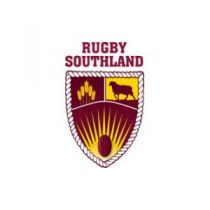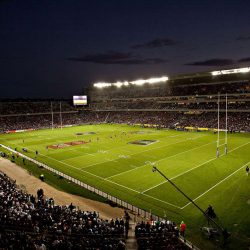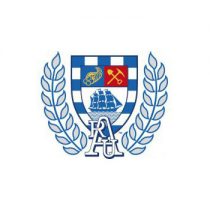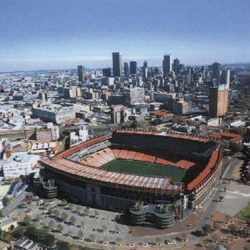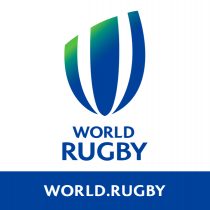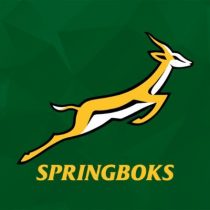SA vs NZ: A 106 test story
- 5172
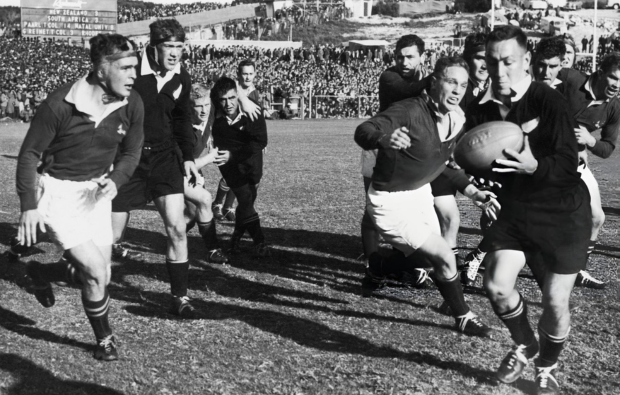
That August Saturday in Dunedin was the occasion of the first of the 106 Tests to have been played between the two British colonies who have been consistently the two toughest nuts to crack for all other countries, not to mention the two strongest rivals when clashing with each other.
In the years between, the contests between the two have been contested for 70 of those years on either side of racial differences.
New Zealand was a nation generally inclusive of its first peoples, certainly far more than the South Africans who enshrined in their apartheid laws a separatism that had been unofficially in practice ever since their country was colonised.
Not that New Zealand could ever claim to be perfect, and its acquiescence to South African demands not to include Maori in touring sides in 1928, 1949 and 1960, is a blot on the game's administration sufficient to warrant an apology to Maori in 2010 – the occasion of Maori rugby achieving its centennial.
When Theo Pienaar's first Springbok team to tour New Zealand arrived in 1921, it was on the back of the New Zealand Army tour of South Africa in 1919 when the Army organisers had created their own shame in meeting South African requests not to include Maori. That resulted in Parekura Tureia, a member of the team that won the post-World War One King's Cup tournament in Britain, being described as missing the boat for the tour. That was a double insult to a man who would captain the New Zealand Maori in their game against the Springboks in 1921, and who would give his life for the country as a captain with the Maori Battalion in World War Two. Also forced to miss the tour was Arthur 'Ranji' Wilson, who was of mixed West Indian and English heritage.
But, as the South Africans admitted, it was that Army team who gave Springbok rugby a shot in the arm at a vital time and who prepared them for what to expect in New Zealand.
The tourists impressed with the power of their forward play, their traditionally big pack, having an impact, especially through their 3-2-3 scrum that was generally more effective than the 2-3-2 New Zealand teams were playing.
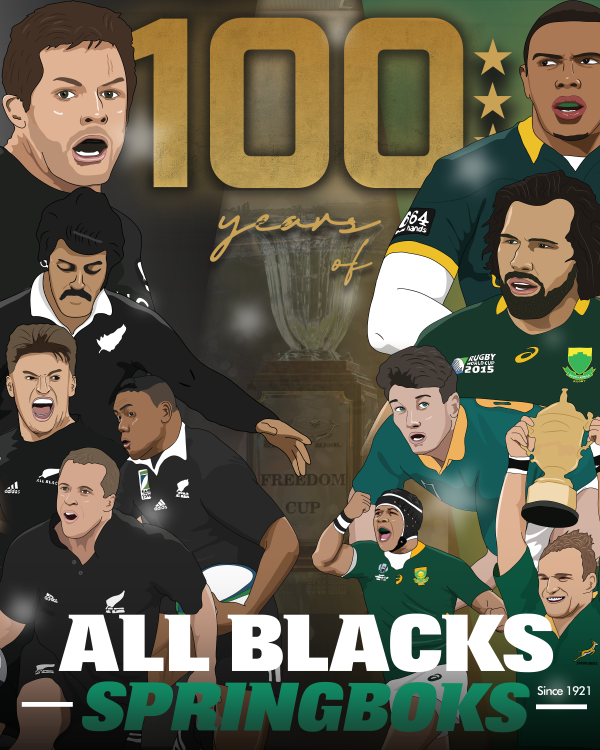
By the time South Africa got to the first Test they had played Wanganui, Taranaki, Wairarapa, Wellington, West Coast-Buller, Canterbury (the only provincial team to beat them on the tour), South Canterbury, Southland (the Ranfurly Shield holders) and Otago. The last match had been a vigorous affair with the captain of the day 'Boy' Morkel threatening to take his team off the field if the fighting wasn't stopped.
New Zealand's selection for the Test was based around a series of trial games, and the annual inter-island game. The biggest surprise was the inclusion of the 40-year-old former New Zealand league player Ned Hughes in the pack, and the choice of H. 'Ginger' Nicholls at halfback ahead of Teddy Roberts, also of Wellington, who had been an All Blacks captain before the war. The captaincy of the All Blacks was given to centre George Aitken who, after the series, left to take up a Rhodes Scholarship in England and returned to Test rugby for Scotland.
The game failed to live up to expectations. One of the stars of the tour, wing Attie van Heerden, who had represented South Africa at the Olympic Games a year earlier, scored a try to give South Africa a 5-0 lead at halftime, tries being worth three points at the time.
New Zealand's backs had been ineffectual, and were criticised afterwards, but the All Blacks managed three tries in the second half, with first five-eighths Ces Badeley featuring in two of them. He lobbed a punt towards the South African in-goal where the outstanding fullback Gerhard Morkel made a rare mistake and let the ball bounce. In times when there was no such thing as a TMO, the game wasn't even broadcast on radio, there was much controversy about the try awarded to New Zealand in the incident. It was believed two other South African players had grounded the ball between them, only for it to slip out and be dived upon by New Zealand's Moke Belliss for a try.
Mark Nicholls, who played at second five-eighths, landed the conversion to level the scores. New Zealand's second try, scored by wing Jack Steel, came after Badeley punted to Steel's wing. Again, the ball bounced, between South African players, and Steel took the ball behind his head and in the process of running half the length of the field managed to drag the ball from behind his back while heading the chasing defence to score. Another Nicholls conversion was followed by a try to wing Percy Storey, one of the stars of that earlier NZ Army tour, in the corner, to give New Zealand a 13-5 win.
Years later, one of the coaches of the team 1905 All Blacks vice-captain 'Billy' Stead, who wasn't a selector, said it was a poorly selected side with too little experience, especially in the backline, while the Test captain of the 1924 Invincibles, Jock Richardson, who made his New Zealand debut in the Test, said the New Zealand back play was no better than that of the University club rugby side in Dunedin.
But, no matter what happened, the rivalry was underway, and it would result in some of the greatest, and worst, moments in New Zealand's rugby history. The 1921 series was inconclusive, the two sides winning a Test with the third Test drawn. Honours were shared 2-2 when New Zealand toured South Africa in 1928, without Maori.
In 1937 with New Zealand still coming to grips with their changed scrum, the 2-3-2 having been abandoned, although not illegal for many years after, South Africa inflicted the worst loss on the All Blacks, 17-6, five tries to none at Eden Park to take the series. If that wasn't enough, the All Blacks lost the 1949 series in South Africa 4-0.
The balance came back during the 1956 tour of New Zealand, won by New Zealand 3-1 with a quality of rugby that was forgettable, based on the 10-man kicking game.
Issues about the non-inclusion of Maori surfaced in 1949 and grew steadily ahead of the tours of 1960 and a scheduled tour of 1967. However, New Zealand had reached the end of its tether and it adopted a 'No Maoris, No Tour' approach which resulted in three Maori, Sid Going, Blair Furlong and Henare Milner, and Samoan Bryan Williams, being given 'honorary white' status to allow the 1970 tour to proceed.
New Zealand denied the Springboks a tour in 1973 because of the threat of violence while a tour in 1976 resulted in African nations boycotting the 1976 Olympic Games. Then, in 1981, the lesson of 1973 was not learned and the divisive 1981 tour of New Zealand occurred.
But by 1992, upheaval in South African politics, and a policy of inclusion in the wake of Nelson Mandela's release from prison, saw a return to mainstream rugby for the South Africans. Significantly, neutral referees had become standard so the claims of bias that affected the earlier tours between the sides were eliminated.
And that has resulted in the early South African dominance of fixtures being reversed with New Zealand now enjoying 59 victories compared to 36 by South Africa with four drawn.
The rivalry still has the ability to produce some outstanding contests. Among them were the first Test after the resumption of contact in 1992, won by New Zealand at Ellis Park 27-24, the Rugby World Cup final of 1995 won by South Africa in extra time 15-12, New Zealand's first series win in South Africa achieved in 1996 at Pretoria 33-26, the 2013 thriller at Ellis Park won by New Zealand 38-27, the World Cup semifinal in 2015 won by New Zealand 20-18, the 2017 57-0 thrashing at Albany and South Africa's 36-34 win in Wellington in 2018 and the 16-16 draw at the same venue a year later.
South Africa's biggest thrashing of the All Blacks came in a test before the Springboks triumphant 2023 Rugby World Cup Run, a fixture that the South Africans won 35-7 at Twickenham. The last fixture between the two nations took place in the final of the world cup final in Paris, resulting in a fourth and back to back world cup for South Africa. South Africa have currently won two of the last three fixtures against New Zealand, with the All Blacks last beating the Springboks 35-20 in Auckland.


